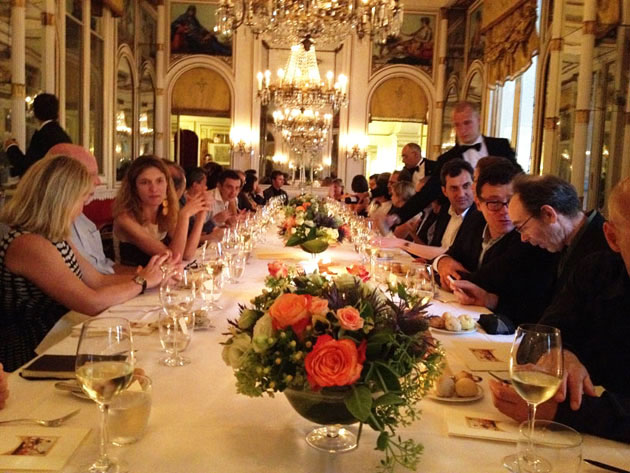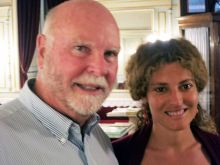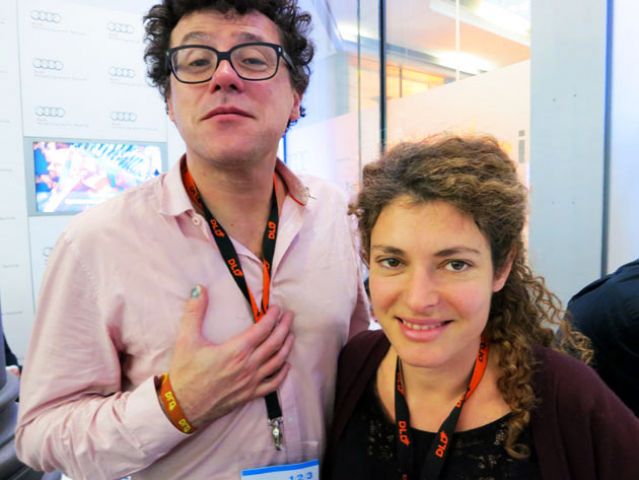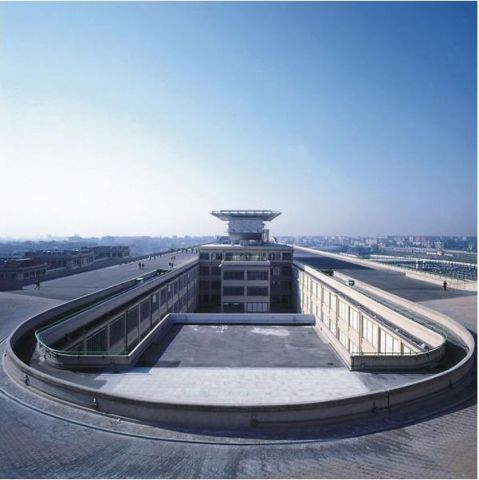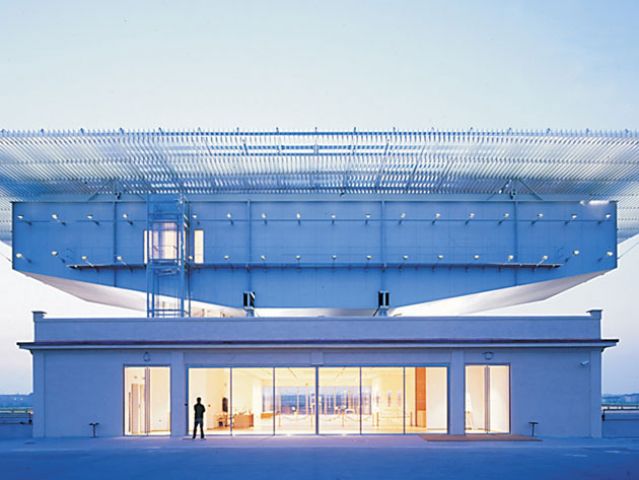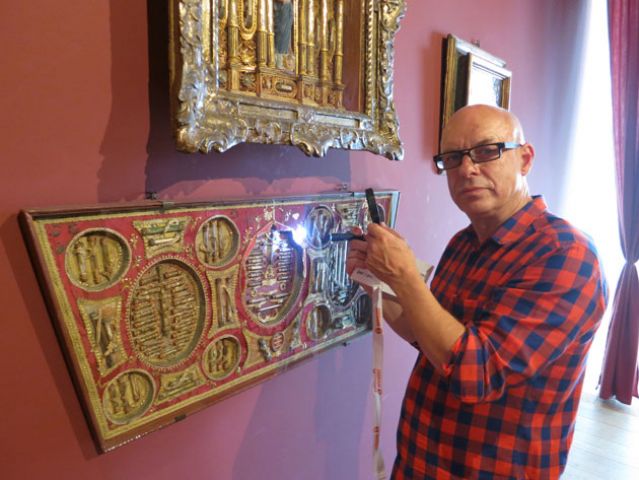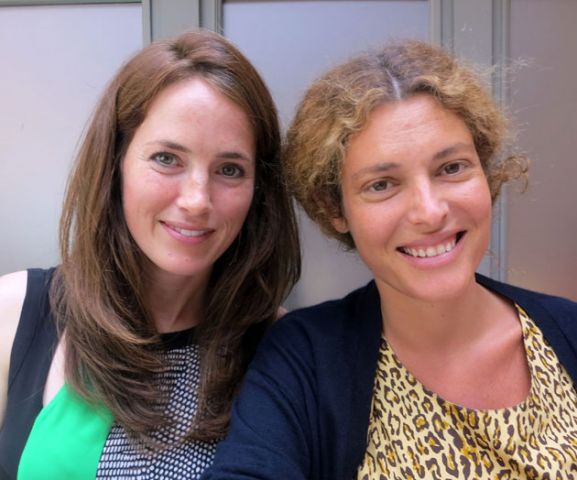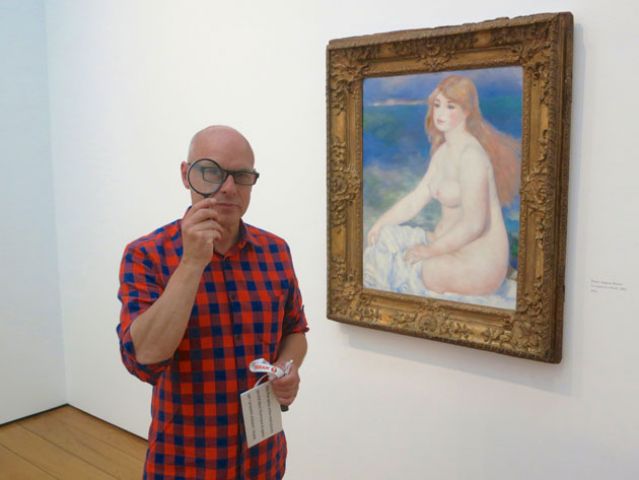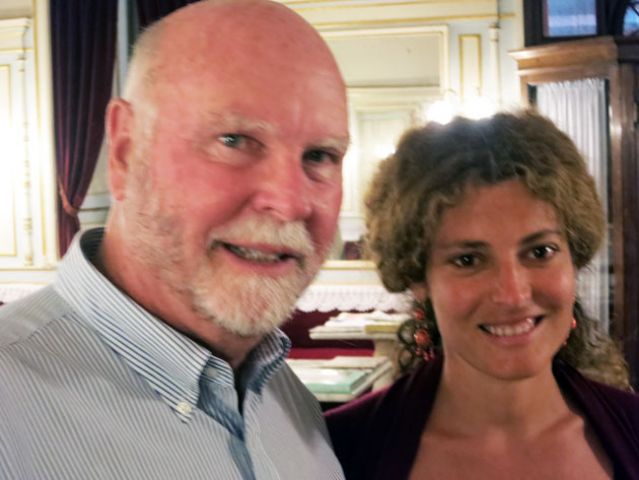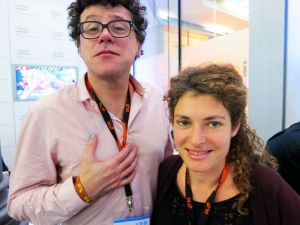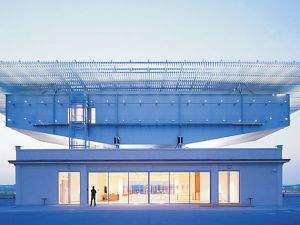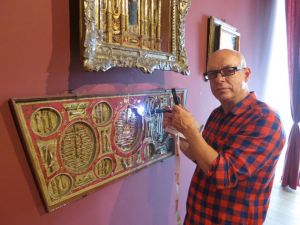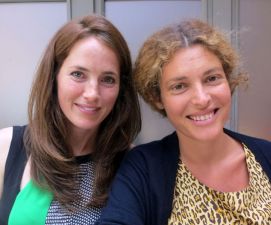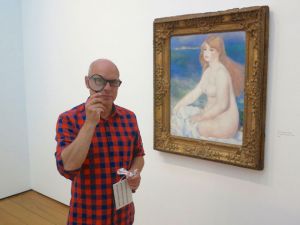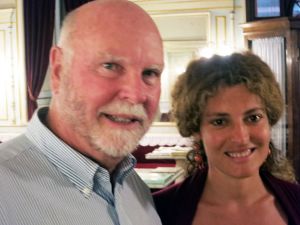DINNER HOSTS
Ginevra Elkann, Film Producer, Asmara Films; President, Pinacoteca Giovanni e Marella Agnelli
Carlo Antonelli, Editor in Chief, Wired Magazine, Italy
GUESTS OF HONOR
John Brockman, Publisher & Editor, Edge.org; CEO, Brockman, Inc.; Author
Brian Eno, Artist; Composer; Recording Producer: U2, Coldplay, Talking Heads, Paul Simon; Recording Artist
J Craig Venter, Genomics Researcher; Synthetic Genomics, Inc.; JCVI; Author, A Life Decoded
ATTENDEES
Massimo Banzi, Co-founder, Arduino Project
Gabriele Beccaria, Editor, Tutto Scienza, science supplement of La Stampa
Tommaso Bertani, DJ
Vittorio Bo, Director, Genoa Science Festival; Codice Publishing
Mario Calabresi, Journalist and Author; Director, La Stampa
Andrea Cane, Publishing Director, Trade Division, De Agostini Editore
Max Casacci, Guitarist, Producer
Franca De D'Agostini, Philosopher, University of Turin & University of Milan
Alain Elkann, Novelist, Journalist; President, Egyptian Museum of Turin
Lara Favaretto, Artist
Marco Gilli, Director, Politecnico di Torino
Jennifer Jacquet, Researcher, NYU, studying the effect of honor and shame on cooperation
Heather Kowalski, Communications Consultant, J. Craig Venter Institute
Arto Lindsay, Pop Musician, Audio Provocateur, Producer
Katinka Matson, Artist; Literary Agent; President, Brockman, Inc.; Co-Founder, Edge.org
Marzia Migliora, Artist
Martina Mondadori, Publisher, Tar magazine; Non-Executive Member, Board of Directors, Momdadori
Franco Noero, Galleria Franco Noero
Marcella Pralormo, Director, Pinacoteca Agnelli
Gaetano Prisciantelli, Journalist, Il Venredi, La Rebbublica
Patrizia Sandretto Re Rebaudengo, Director, Fondazione Sandretto Re Rebaudengo
Tadjbakhsh Shahriar, COO, EXOR; Former Director, Goldman Sachs, Paris
Gianluigi Ricuperati, Writer and Essayist, La Repubblica
Scarlett Rouge, Artist
AFTER-DINNER TALK
We can now send biology at the speed of light, and this is one of the implications of our work, which we recorded two years ago making the first synthetic life form. We completely synthesized the genetic code of a cell starting with a digital code in the computer—it's the ultimate interface between computers and biology. The digital code and the genetic code have a lot in common; something Schrodinger pointed out in 1943, saying it could be something as simple as the Morse code. ... Digital code, as you know, is a binary code, and ones and zeroes, and your genetic code is literally four-base code with ACGs and Ts. We can now readily convert in between the two, and we can define life at its most basic level. Things that were a mystery fifty, sixty, seventy years ago, we now understand completely.
THE BIOLOGICAL-DIGITAL CONVERTER:
BIOLOGY AT THE SPEED OF LIGHT
A Talk by J. Craig Venter
Genomics researcher J. CRAIG VENTER is regarded as one of the leading scientists of the 21st century, most notably for the first sequencing and analysis of the human genome published in 2001 and the most recent and most complete sequencing of his diploid human genome in 2007. He is Co-Founder, Chairman, Synthetic Genomics, Inc.; Founder, J. Craig Venter Institute; Author, A Life Decoded.
THE BIOLOGICAL-DIGITAL CONVERTER —OR—BIOLOGY AT THE SPEED OF LIGHT
J. CRAIG VENTER: These are exciting and challenging times for science and society. If you look at the practical side of things, in the next 11 years we're going to add a billion people to the planet, so basically the equivalent of China being added in 11 years, and 12 years after that we're going to add another billion people. Last October we just passed the 7 billion mark, and that took 12 years to happen from 6 billion. In the 1800s it took well over 100 years to go from 1 to 2 billion people. We're in a unique time in history where there are more people alive than have ever existed in human history, and we keep expanding tremendously, and exhausting the resources of the planet.
There are a number of things that come into play here. We've been doing everything from trying to understand the human genome, and human genetic inheritance, and we have teams that are doing some of the first genomes of early populations in Africa and have traced down actually the oldest populations in Southern Africa that we all have evolved from, from groups that migrated out of Africa. It turns out I have a Northern European ancestry primarily, and so we probably all share this. My ancestors, and probably most of yours found Neanderthals attractive and mated with them. And so what was thought to not be any coexistence, we now ... 3 to 4 percent of my genome is Neanderthal-derived. My friend, Bill Clinton, when we shared an honor a couple of years ago, told me he learned that he was 3 percent Neanderthal, and that explained all his problems while in office.
We're learning about our own history, our own migrations, but we have to do something different for the future. A major producer once argued that we have two hopes for humanity, one is to be able to populate distant planets, and the other is to alter our genetic code so we can survive in a very deteriorated environment here on the planet.
We're working on both, and there are some exciting changes. Science is changing things very quickly. Think about how the Internet has changed all of our lives in the last decade or so. I assume most people here have an iPad, and that's three years old, barely? And it's hard to imagine life without an iPad in our culture. But very soon we're going to be able to send something else across the Internet. We can now send biology at the speed of light, and this is one of the implications of our work, which we recorded two years ago making the first synthetic life form. We completely synthesized the genetic code of a cell starting with a digital code in the computer—it's the ultimate interface between computers and biology. The digital code and the genetic code have a lot in common; something Schrodinger pointed out in 1943, saying it could be something as simple as the Morse code.
Digital code, as you know, is a binary code, and ones and zeroes, and your genetic code is literally four-base code with ACGs and Ts. We can now readily convert in between the two, and we can define life at its most basic level. Things that were a mystery fifty, sixty, seventy years ago, we now understand completely.
We know what a cell is, know that all the components, all the proteins in the cell are miniature robots. They don't have a brain, they don't have a soul, they have a structure that defines their function, and their structure is determined by the genetic code, which defines the linear code of the protein, which determines how it folds, how it functions, and how stable it is. You don't feel it sitting there, but every one of your 100 trillion cells is rapidly metabolizing proteins. Your proteins have a half-life between a few seconds and ten or twenty hours. You don't know that you're sloughing 500 billion skin cells a day. All that dust you find around your houses, in your apartments? That's you, little bits of you. You turn over your entire skin every two to three weeks. Biology is a constant state of renewal, and it's a software-driven state of renewal. Take the DNA out of the cell, and the cell dies. In fact, that's why radiation kills people. It disrupts the genetic code, breaks it up, and people die because all the proteins degrade very quickly.
But imagine if you could e-mail yourself to Mars or some distant planet. We can actually do that now, because with our synthetic cell, we start with the digital code in the computer, and there's no difference between digital code and genetic code. Because digital code can move as an electromagnetic wave, basically close to the speed of light, we can now move biology at the speed of light. This has some practical applications.
The recent movie Contagion portrayed how everybody died from flu pandemic, while awaiting the vaccine. Real life is much better than science fiction. We can now make a new flu vaccine in less than twelve hours using synthetic DNA. Instead of having to deal with a major pandemic where you can't travel out of your home or your city, imagine that you had a little box next to your computer, and you got an e-mail, and that gave you a chance to actually make a vaccine instantly, sort of like 3D printers. What we do with information now, we will be doing with information and biology together.
Obviously the downside is you could instead of giving your partner a genetic disease or an infection, you can e-mail it. So people could use this to do harm, as we see with computer viruses all the time. You would, of course, want good computer and biological virus protection on your DNA decoder.
The idea that you're basically a DNA-driven software device is not the view that people necessarily have of themselves. But every cell on this planet works that way in a biological-to-mechanical kind of fashion. No brain controlling what happens with DNA reading and protein synthesis in your cells. The combination of one hundred trillion cells gives different people different abilities to make wonderful music, to make science advances, to think, but every one of those cells operates in the same fashion. And that means we will be able to decode how the brain functions by understanding these same mechanisms. There's no need to evoke mysticism or a higher being. That's what Schrodinger did seventy years ago. He couldn't explain things, so he did what people do when they can't explain something. He evokes mysticism. But science is getting very advanced with regard our understanding life. We know what it is, and we now know how to reproduce it. We produce life by writing new software.
Many of us know the space, electric car, and solar energy inventor and entrepreneur Elon Musk, whose rockets are doing extremely well. Based on this success, within a decade we're likely going to see attempts to colonize the moon. Elon wants to colonize Mars. Depending on how close moon and Mars are to each other, it takes between four minutes and twenty-one minutes for an electromagnetic wave, for light, to go from Earth to Mars. But imagine you're on a colony on Mars, and you want a new cell that produces food, or fuel, or some medicine, or a vaccine, you can just e-mail that and convert it back into biology.
The idea that you're basically a DNA-driven software device is not the view that people necessarily have of themselves. But every cell on this planet works that way in a biological-to-mechanical kind of fashion. No brain controlling what happens with DNA reading and protein synthesis in your cells. The combination of one hundred trillion cells gives different people different abilities to make wonderful music, to make science advances, to think, but every one of those cells operates in the same fashion. And that means we will be able to decode how the brain functions by understanding these same mechanisms. There's no need to evoke mysticism or a higher being. That's what Schrodinger did seventy years ago. He couldn't explain things, so he did what people do when they can't explain something. He evokes mysticism. But science is getting very advanced with regard our understanding life. We know what it is, and we now know how to reproduce it. We produce life by writing new software.
Our announcement made eighteen months ago, was one of the few science announcements that received an immediate response from the President and the Pope. The President asked his Bioethics Commission to start looking at this development as their number one issue, and the Vatican released a statement that all we did was change one of the engines of life. They said it could lead to some important advances, but it wasn't creating life itself.
But DNA is not the engine of life, it's the software of life; the proteins are the engines, they're driven directly by that code in a very understandable, predictable fashion now. This has implications in many different areas.
We have teams trying to work on new sources of food, actually designing new food in the computer. It may be awhile before they taste as wonderful as some of the food we had tonight, but we can actually design foods that have very high nutritional components to them, and we're learning a lot as a society about food chemistry. The Olympics are about to hit London. Many of the Olympic athletes have special physicians and nutritionists. They're giving them certain types of proteins. These Olympic trainers can actually sculpt people's bodies in very specific fashions, depending on which muscle groups they want it to go.
We are chemical beings, and we're software-driven beings, and once you understand that, then you can write new software. Anything becomes possible. We're trying to design cells to make new sources of energy, recycling carbon dioxide, getting these same cells to maybe use their recycled CO2 to make food, as well as fuel. It was an exciting change at least at a stage when we're exhausting our existing natural resources, and unless we can just stop population expansion, we have to do something pretty drastic in new sources of food, fuel, water and medicine.
It's an exciting time for science, it's an exciting time for society, but I'm sure there are a lot of strange thoughts running through your minds about the implications of some of this and where it might take us. We were tossing around ideas earlier. We're trying to make meat just by making beef and chicken muscle proteins without the cow and the chicken. And so I was calling it "motherless meat". And then Brian Eno came up with the line that it was "murderless" meat.
Those of you who are vegetarians are going to have real dilemmas in the future of not knowing what's meat and what's vegetable, because in fact, we can grow these meat proteins in vegetables. In fact, vegetables have most of the same proteins that are in meat anyway. Our definitions of life are getting clearer; the social ambiguities are getting greater.
DISCUSSION
JOHN BROCKMAN: What are the differences in what's happening in European science and European regulation, and attitudes versus the US and UK?
CRAIG VENTER:Things are slowly changing. What started out of fear of the unknown, the fear of making changes based on knowledge in the genetic code, can be seen in literature. Mary Shelley's Frankenstein led readers to believe that you could meld different parts together and make humans. The idea that when humans exceed the boundaries of God's world, then all wrath comes down on them, us a classic story in literature. That theme has permeated a lot of GMO fears and other fears, but I've been quite candid is saying that if Europe doesn't get over GMO fears, it's going to be just one more thing that drives the region into oblivion as the rest of the world changes to survive.
BRIAN ENO: Where do you expect to meet most resistance in what you're doing, or where do you find most resistance to what you're doing?
CRAIG VENTER: There's been virtually no resistance starting with trying to produce fuels from carbon dioxide and recycle the CO2. As we start to move into food, there's almost nothing more personal for people than what we eat, right? It's culture, it's history, it's every part of how we identify our species, and that's how the genetic modification fear was basically started in Europe, mostly out of economic competition fear, is my understanding of it. But you know, we're all very concerned about what we eat, food security, food safety and that's a real problem in mass-produced food now when there's not proper control. As we move into the food arena, it gets much more personal for people, much more so than medicine or even understanding your own genome, your own future, your children's future, what diseases you're susceptible to. All that seems to be readily acceptable, food seems to be closest to humans for some reason.
BRIAN ENO: But what difference do you think it makes to people if they can make quite accurate predictions about the course of their future life? For instance, in New Scientist just a few weeks ago, there was a website that I actually chose not to visit, which would tell you how long you could expect to live. On the basis of what had happened to your parents, and various personal habits you had and so on, you could compute they thought with a fairly good degree of accuracy how long you had left. And I thought, "I don't think I want to know, actually."
CRAIG VENTER: Obviously those are just statistical guesses, but we are a statistical species, and our genetic code is probability statistics. There are very few yes-no answers in your genome. My genome was the first one sequenced on the planet. If we read any of your genomes today, there's not a whole lot more that we could have told ten years ago when we read my genome. We're at the infancy of the interpretation of the data. But there are populations on the planet where it has tremendous impact.
In some countries like Abu Dhabi and Saudi Arabia, they have the highest rates of type 2 diabetes in the world all from primarily first cousin marriages, from certain limited number of Bedouin tribe lineages with all intermarrying within those lineages, and type 2 diabetes was a survival advantage for hunter/gatherers in the desert, but it's not for this sedentary life in modern Saudi Arabia or Abu Dhabi. So they have 50 percent of the population will get type 2 diabetes. But they also have some of the highest rates of other genetic diseases, so they would benefit immediately from understanding their genetic code and deciding whether they're going to have children or not because they have the highest populations with very severe genetic deformities and diseases that could be totally prevented just based on knowledge.
Trying to predict when you or I are going to die from our genetic code is nowhere near possible right now, unless you have one of these rare diseases like Huntington's disease, and even then it's hard to predict exactly when the onset will be, and when you'll die from it. But what it does change is change it from averaging all of us together and saying, "Here is what a norm is for the population" versus "Here's where you very specifically are within your much different range". And we're all going to belong to maybe 300, 500, 1,000 different peer groups. You're going to have a peer group based on your genetic susceptibility to diabetes, maybe different ones for intelligence; maybe it's music abilities. Who knows what the peer groups will end up being once we have very large populations with these datasets. But the number one impact in the long run will be preventative medicine, preventing diseases before you get them.
BRIAN ENO: You've been doing a lot of research, on a big boat, which is actually a laboratory doing scientific research. I find what you are doing absolutely fascinating, so I wonder if you would just describe very simply what it is to people because most people don't know about it.
CRAIG VENTER: It started with a simple notion, the same way, that we discovered that all of you have about a hundred trillion bacteria right now in and on your bodies. It doesn't matter how many times you wash your hands, you're not going to get rid of them. You have about a thousand different species right now in your mouth, which may or may not be a good thing, depending on who you're sharing it with. (Laughter) This is called the "microbiome". We discovered it the same way we started sampling the oceans, of just taking the entire collection of material, reading the genetic code all at once from all these millions of separate pieces and then solving the equation in the computer to see what species are there and what they might do, and so all affected by as much by your microbiome as we are by our own genetic code.
We've just finished this fantastic meal with a rough count of about twenty or thirty different species whose DNA we all consumed, despite how well it was cooked, a few billion microbes on the side. And the microbes in your gut are metabolized in the chemicals that you absorbed, and you all have about fifty chemicals right now circulating through your brains from bacterial metabolites of what we just ate. And this part of human medicine was never understood before.
We did the same things in the oceans. We just took 400 liters of seawater, a big bucket, we filtered all the organisms out and we sequenced all the DNA at once from the organisms, and solved the equation on the computer. We found out that diversity of life was about two orders of magnitude greater than anybody predicted, and so we've been taking samples every 200 miles around the globe. We found roughly every 200 miles the samples are 85 percent different. Instead of the ocean being a giant homogenous soup, it's millions and millions of microenvironments constantly changing based on what nutrients are there, what is the amount of sunlight, the amount of wave activity, the amount of oxygen. We don't have the sensory tools to be able to see that we're on a microbial planet. It's not within our visual acuity range, so we need tools of science to see these things. Of course, we use microscopes for reading the genetic code to see what's there. But these organisms in the ocean produce about 60 percent of the oxygen we breathe. If they go away and die, we go away and die, and understanding that diversity, however the diversity is changing, is affecting everything.
There are articles in the news over the last few days about how coral reefs are bleaching, simple changes in a few microbes because of the 1 or 2-degree temperature change in the ocean is wiping out coral reefs. All these things are interrelated and we're interrelated to all these organisms.
We were talking about space, so just think of the space station right now. Consider that if each new astronaut or cosmonaut that goes up there takes 100 trillion microbes with them, and they all come from different cultures and environments around the planet, it has to get to be a pretty ripe tin can up there. (Laughter). NASA has given us all their HEPA filters from this space station to analyze this huge collection of all the microbes that have been up there. But apparently it gets pretty ripe up there. It's a simple closed environment. But as we start to expand our population by the billions, we're in a closed environment, that this planet is remarkably small compared to what the resources are and what we're doing to it. On the other hand, the amount of diversity in the oceans is very healthy.
In fact, the problem with the populations in Saudi Arabia and Abu Dhabi is that they don't have genetic diversity because of all the inbreeding. That's what happened to the Bengal Tigers. You might think, well, there are a few of them are left, they can keep breeding. The trouble is once you get down to a limited number of genetic types, there is no diversity, it doesn't come in, and each time they breed you add more diseases to the repertoire, instead of out-breeding with groups that have had healthy traits. But what we do with agriculture, what we do with most things in industry is the opposite. We take away all the diversity so that one virus could wipe out a third of agriculture in a couple weeks because it's all the same plant. That's the danger of GMOs. It's not about whether you eat them or not, it's whether we're eliminating diversity with what we grow and makes it susceptible to rapid elimination. The further you outbreed genetically from populations that are very similar to you, the healthier your offspring will be.
You see this with every breed of dog, as they get highly inbred, and the more you inbreed them, the more diseases they get. So diversity is essential for long-term survivability.
QUESTION: It seems one reason are really afraid of genetic engineering is because they feel similarity between that and the atom bomb having come from lab.
CRAIG VENTER: It does have a lot of similarities. In some cases, synthetic biology is more dangerous because it doesn't take huge armies and billions of dollars to do this. Small groups can do it. Because what you get off the Internet is convertible into biology, it makes it very easy now with these new technologies that we've developed and others have developed to rapidly convert digital information into biological information. A reality about our species seems to be we breed a certain percentage of our population that wants to do a lot of harm to others. It is a constant danger, but we actually had bigger problems than that, and they all stem from increasing the population. New emerging infections are a far bigger threat than any deliberate infection. HIV was emerging infection. We mostly have wiped out smallpox, but there are probably 50 different poxviruses in monkeys and other species, got a few changes in the genetic code and they will naturally hop over to the human population. That's what we saw with H5N1. It was a combination of different species, flu viruses that recombined to all of a sudden work in humans. The more you increase the population density, the more you increase the dangers of new emerging infections. The solution for both is similar, it's new sources of antibiotics, antivirals, new types of antimicrobials. They can wipe out a deliberate infection or a new naturally occurring one. These new tools we have for rapidly making vaccines are a part of the solution, but it was nice that the Obama Bioethics Commission came down on the side that this technology is so powerful, with the hope for humanity being so high that it's worth taking those risks right now.
This Digital Biological Converter is not a myth, the United States government emails my Institute a new pandemic viral sequence, and we have 12 hours to try and make the new vaccine, get it to Novartis to get ready to scale up. We have a kludge version of that Digital Biological Converter now. But you're going to see this developing very rapidly where, in the same way the telephone interpreted signals coming through a wire, instead of hearing sound, you're going to be able to get biology coming out of your computer or your telephone wire. Ten years ago this would seem to be a science fiction story. Now it's starting to be reality.
One disturbing thing factor is that we have relied on the pharmaceutical industry in the past to be constantly developing the new antimicrobials. But some of these companies have completely laid off their entire anti-infective, antimicrobial groups because pharmaceutical companies, which I don't view as evil entities, are economic-driven entities, and can make far much more money off of chronic diseases, like treating diabetes, than they can for short-term infections. They're driven away from what we need as new antimicrobials, and we don't have mechanisms to get them quickly through regulations. We are pandemic-ready for the new flu vaccine that, as I said, we can make in 12 hours, and we're working with Novartis and the US government.
This shows you that this Digital Biological Converter is not a myth, the United States government emails my Institute a new pandemic viral sequence, and we have 12 hours to try and make the new vaccine, get it to Novartis to get ready to scale up. We have a kludge version of that Digital Biological Converter now. But you're going to see this developing very rapidly where, in the same way the telephone interpreted signals coming through a wire, instead of hearing sound, you're going to be able to get biology coming out of your computer or your telephone wire. Ten years ago this would seem to be a science fiction story. Now it's starting to be reality. The question is can we develop these new tools fast enough to ward off what's going to be a new set of pandemics sooner and later? And it's not just the populations; it's how fast we move around. Twenty-four I was having drinks on Nantucket Island, a long way from Torino, and populations move very quickly, and that's why H1N1 spread so quickly. It was from airplanes moving the virus around.
Europe countries are cutting back funding of science to save their budgets. Italy's been cutting back for a very long time. It's not clear it can ever recover, or it's going to take massive amounts of money and massive amounts of time. We are a society that's 100 percent dependent on science for our future survival. It's not a nice option; it's absolutely essentially for every one of us. I don't know how to reverse that situation other than, perhaps by utilizing these new Digital Biological Converters, taking this kind of technology out of the hands of the infrastructure so you can have one at your own home. Then, if a new vaccine comes available, you download it and you can protect yourself and your family. It may be the Internet was the democratization of data. The Internet could also perhaps lead to the democratization of biology.
Click here for 'What Is Life: A 21st Century Perspective' by J. Craig Venter on the 70th Anniversary of Schrödinger's Lecture at Trinity College [7.12.12]

Carlo Antonelli & Ginevra Elkann @DLD, Munich

Pinacoteca Giovanni e Marella Agnelli surrounded by the Fiat race track

Pinacoteca Giovanni e Marella Agnelli designed by Renzo Piano

Jennifer Jacquet, Shame Researcher & Ginevra Elkann, President, Pinacoteca Giovanni e Marella Agnelli at lunch at Eataly
Turin

Eno examines Ruebens in the Permanant Collection at Pinacoteca Giovanni e Marella Agnelli

